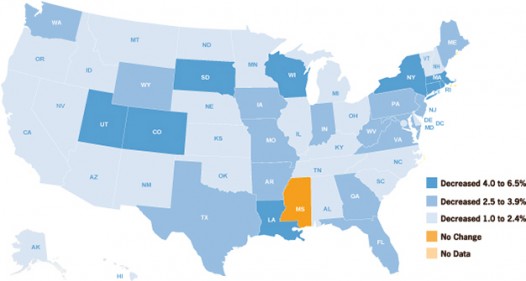CDC Report says Most Hospitals Could Do More to Support Breastfeeding
 A new Centers for Disease Control and Prevention report says a majority of U. S. hospitals do not fully support breastfeeding with their practices for new moms. There’s been improvement according to CDC Director Dr. Thomas Frieden, but the progress has been really slow in getting hospitals to adopt practices that support breastfeeding.
A new Centers for Disease Control and Prevention report says a majority of U. S. hospitals do not fully support breastfeeding with their practices for new moms. There’s been improvement according to CDC Director Dr. Thomas Frieden, but the progress has been really slow in getting hospitals to adopt practices that support breastfeeding.
Dr. Frieden says only 14% of hospitals have a written model policy, including helping mothers initiate breastfeeding within an hour of birth, having infants room with their mothers, not giving newborns formula feedings unless medically indicated and offering follow up support. He says less than half of U. S. babies are breastfed at all during the first six months of life. Only 15% of mothers breastfeed exclusively for six months.
Dr. Frieden says breastfeeding lowers the risk for infections, Sudden Infant Death Syndrome, diabetes and obesity for the child. As a result, he says breastfeeding results in lower health care costs. He says there are also health benefits for the mother, by lowering the risk of breast and ovarian cancer.
It’s estimated that the failure to promote breastfeeding may cost the country’s health care system 2.2 billion dollars every year in health care costs alone.
Dr. Frieden says if the United States does not accelerate the current slow improvement in practices, most of the next few generations will be born in hospitals that don’t effectively support women who want to breast feed.



